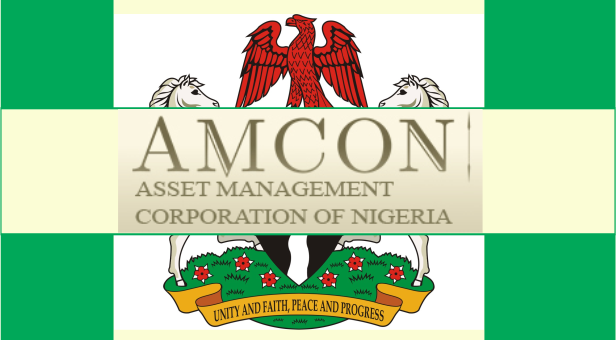- AMCON Recovers N682bn Bad Debts in Six Years
The Asset Management Corporation of Nigeria has recovered N681.5bn of non-performing loans in the last six years of its existence, the Managing Director/Chief Executive Officer of the corporation, Mr Ahmed Kuru, has said.
The recoveries, he said, were made from debtors in the form of cash, properties and shares.
AMCON was set up in 2010 to absorb banking sector-wide NPLs in exchange for government bonds, after the Central Bank of Nigeria rescued nine weak banks from collapse in 2009.
In a statement by the corporation on Monday, Kuru was quoted as saying this during an interaction conference of Federal High Court Judges held at the National Judicial Institute complex in Abuja.
The theme of the conference is, “The AMCON regime: A paradigm shift in debt recovery.”
Kuru said the recoveries were made possible through court-sanctioned settlements or outright judgment.
According to him, the judiciary is the most important stakeholder in the pursuit of its statutory mandate.
This, he said, was why AMCON would continue to seek the support of the judiciary all through its lifespan.
The AMCON boss said his assertion was based on the fact that when all other resolution strategy failed, AMCON resorted to the courts to exercise its special enforcement powers.
He said, “We understand the crucial role of the judiciary, which is why we always look forward to opportunities like this where we can share some of our unique experiences towards ensuring that justice is done in all of our cases based on a thorough understanding of the unique regime under which AMCON was established in 2010.”
The “bad bank” still has around N1.7tn worth of assets under litigations.
The Administrator, NJI, Justice Rosaline Bozimo, who spoke during the event, said the judiciary and all stakeholders in the financial industry were vital to the activities of the AMCON and its debt recovery efforts.
She said this while emphasising the importance of the corporation and its ability to correct the economic flaws of the past.
Bozimo said the call had become necessary because of the critical but difficult assignment of AMCON to recover huge debts as mandated by its establishment Act.
The legal expert informed that the Justice of Nigeria, Walter Samuel Onnoghen, gave approval for the interaction because of AMCON was an integral component of the financial safety net system.
Bozime, therefore, said that acknowledging Nigeria’s critical economic status; acquiring the intellectual competence of promoting the financial system stability and ring-fencing the integrity of the macro-economy from fragmentation, should be encouraged and supported by justices and justices of the Appellate courts.
The statement quoted her as saying, “My Lords, the relevant mechanisms and approaches inherent in complementing AMCON judicial and judiciously to accomplish its primary mandate in the area of liquidity support, assumption of troubled loans and compliments to businesses, should be encouraged and supported by all stakeholders. Hence, the roles of judicial officers in aiding AMCON to achieve its statutory objective are very key.”
The NJI boss said the institute in the future would collaborate with AMCON to ensure that all its judicial officers were exposed to the novel prescriptions in the AMCON Act.
She argued that this development was understandable considering that judges and justices must be effectively and constantly informed to enable them accomplish their tasks with desired precision and competence.


 Forex3 weeks ago
Forex3 weeks ago


 Naira2 weeks ago
Naira2 weeks ago
 Billionaire Watch2 weeks ago
Billionaire Watch2 weeks ago




 Naira2 weeks ago
Naira2 weeks ago




 Naira2 weeks ago
Naira2 weeks ago




 Naira1 week ago
Naira1 week ago




 Naira4 weeks ago
Naira4 weeks ago




 Naira3 weeks ago
Naira3 weeks ago





















